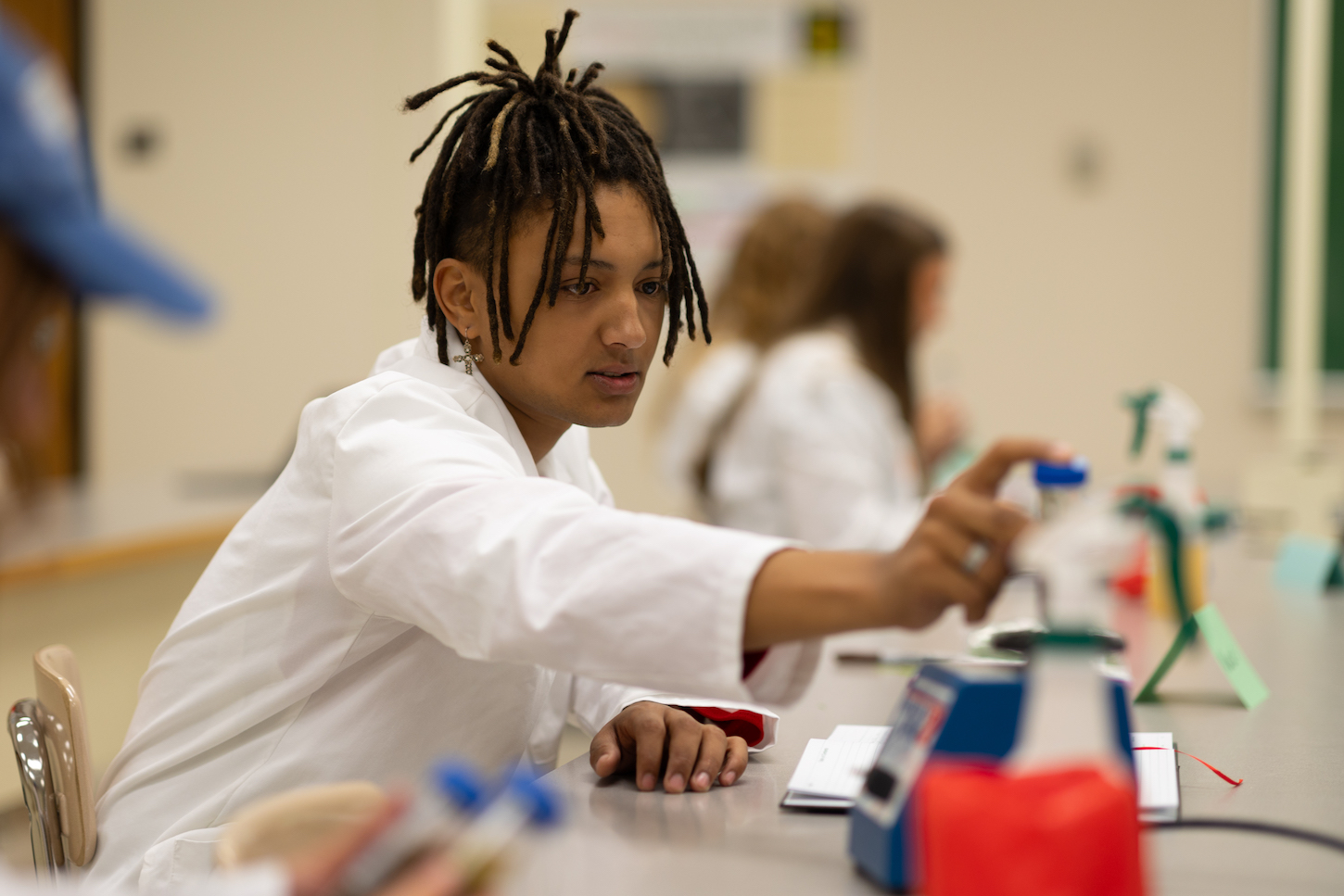$1.7 Million Grant to Fund Scholarships, Research Opportunities for Students
September 3, 2024

The next generation of biomedical scientists from Idaho State University will be getting a helping hand from the National Institutes of Health.
Thanks to a five-year, $1.7 million grant from the NIH’s National Institute of Allergy and Infectious Diseases, students will be eligible for up to $7,000 in scholarships over four years and other support through the ISU Bridges to Research Careers (BRC) program. Up to 40 students will be recruited each academic year via Bengal Bridge, Idaho State’s seven-week “transitional academic program designed to increase college access and opportunity for recently graduated high school seniors” for the ISU BRC program.
“The ISU BRC program addresses critical gaps in providing opportunities for first generation, limited-income college students and, importantly, helping those students achieve their educational and career goals,” said Michael Thomas, a professor in the Department of Biological Sciences.
“For students who are the first in their family to attend college, this program provides a family-like setting to support their journey through college, helping launch their careers in the biomedical and health professions,” said Matt Alexander, clinical assistant professor and coordinator of the ISU Bengal Bridge program.
In addition to the scholarships, students will be assigned academic, peer, and faculty mentors, attend a three-day retreat at Grand Teton National Park at the start of each school year, participate in educational and professional growth opportunities, and more. Students will also be enrolled in ISU’s Bacteriophage Discovery and Genomics class during their first year on campus. The two-semester lab-based course sees students go through all the parts of the bacteriophage discovery and description process. Bacteriophages–informally referred to as phages–are viruses that infect bacteria, and the class has students collect the bacteriophage, take a photo of the phage using a transmission electron microscope, extract and sequence its DNA, use bioinformatic tools to identify different genes, and present and publish their findings.
“Students will have a team-centered and authentic research experience that gives them skills and experience to join a faculty research lab starting their sophomore year,” said Thomas. “After the first year, every student will have their name on a peer-reviewed scientific research publication, placing them light-years ahead of other students when applying for jobs, graduate school, medical school, or other professional programs.”
The ISU BRC Program is led by Thomas and involves six ISU faculty members and several graduate students.
In 2022, ISU received a $1.5 million grant from the National Science Foundation for transfer student scholarships and other support for students seeking an undergraduate degree in biology, microbiology, biochemistry, or chemistry. So far, 19 transfer students have participated in the effort, which is slated to run through 2028.
Learn more about ISU’s Department of Biological Sciences at isu.edu/biology.
To schedule a campus tour, visit isu.edu/visit.
Categories:
